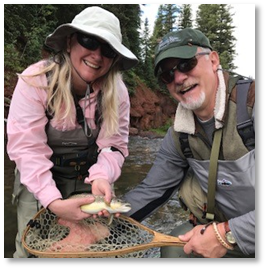2022 Vision to Action Award
Brian Carter, MD
Vision to Action Award Goes to Pioneer in Pediatric Palliative Medicine and Ethics
 When Brian Carter enrolled in the U.S. Coast Guard Academy, he had hopes of becoming an oceanographer but discovered that only two percent of the class was allowed to pursue that major. Born in San Diego and living in the Netherlands where his father was based in the Navy until he was two, he made the hard choice to leave the Coast Guard and return to Nashville, Tenn., where he spent time as a teenager. It was a choice that ultimately led to neonatology, pediatric palliative care, Children’s Mercy Hospital in Kansas City, and the Center for Practical Bioethics.
When Brian Carter enrolled in the U.S. Coast Guard Academy, he had hopes of becoming an oceanographer but discovered that only two percent of the class was allowed to pursue that major. Born in San Diego and living in the Netherlands where his father was based in the Navy until he was two, he made the hard choice to leave the Coast Guard and return to Nashville, Tenn., where he spent time as a teenager. It was a choice that ultimately led to neonatology, pediatric palliative care, Children’s Mercy Hospital in Kansas City, and the Center for Practical Bioethics.
Carter became interested in medicine while majoring in biology on scholarship at David Lipscomb College in Nashville and working part-time as a pharmacy technician. A U.S. Army Health Professions Scholarship enabled him to attend the University of Tennessee College of Medicine in Memphis.
Critical Newborns
“I became enthralled with care for the critically ill newborn,” said Carter of his decision to pursue a residency in pediatrics at Fitzsimons Army Medical Center outside of Denver, Colorado, and later a fellowship in Neonatal-Perinatal Medicine at the University of Colorado, where he served on the hospital’s inaugural ethics committee.
He was also influenced by personal crises.
“My wife and I experienced a stillbirth and a year later the live birth of my son at 34 weeks,” said Carter, “the same gestation as President Kennedy’s infant son, Patrick, who died in 1963 with respiratory distress syndrome, invigorating the field of neonatology.”
He Wrote the Book
Carter published a paper on ethical and professional conduct issues he observed as a Medical Company Commander in the 1991 Gulf War in Iraq. Commended for meritorious service with a Bronze Star, he resigned his commission in 1996 and joined the faculty of the Medical College of Georgia.
According to Carter, the majority of children who die in ICUs are less than a year of age. His work in pediatric palliative care puts him among a very small group of clinicians in the early 2000s advocating for better care for these children and families.
Carter and Dr. Marcia Levetown published the first edition of the first textbook on pediatric palliative medicine – Palliative Care for Infants, Children and Adolescents – in 2004 during Carter’s 13-year tenure on the faculty at Vanderbilt University Medical Center.
Coming to Kansas City
In 2005, Carter led the first of three conferences presented by the Kansas City Partnership to Advance Pediatric Palliative Care, organized by the Center to ensure growing commitment to palliative care for children. Carter’s talk explored the needs of critically ill children and their families.
In 2012, with his wife Angel having completed her doctorate and their children graduated from high school, Carter accepted the invitation from Children’s Mercy Hospital to join its Pediatric Bioethics Center where he serves as co-director for its Certificate in Pediatric Bioethics. He also joined the faculty of the University of Missouri Kansas City School of Medicine in 2012 to work with medical students, and in 2018 became the Sirridge Endowed Professor of Medical Humanities and Bioethics. In 2020 he became the Department Chairman for the Department of Medical Humanities and Bioethics. This year he became the Interim Director of the Children’s Mercy Bioethics Center.
Practical Bioethics Leadership
 Since coming to Kansas City, Carter has served many times as faculty for the Center’s Ethics Committee Consortium, helped to expand development of ethics committee competencies, facilitated collaborations with Children’s Mercy, provided testimony and advocacy on ethics issues addressed by the Center, and supported the development of the Center’s Ethical AI Initiative. He recently retired after three years serving on the Center’s Board of Directors.
Since coming to Kansas City, Carter has served many times as faculty for the Center’s Ethics Committee Consortium, helped to expand development of ethics committee competencies, facilitated collaborations with Children’s Mercy, provided testimony and advocacy on ethics issues addressed by the Center, and supported the development of the Center’s Ethical AI Initiative. He recently retired after three years serving on the Center’s Board of Directors.
A former marathon runner, avid reader, and lover of jazz, he and Angel have adopted fly fishing as their most recent hobby. Carter looks forward to continuing to teach, write and speak about perinatal and neonatal ethics.


